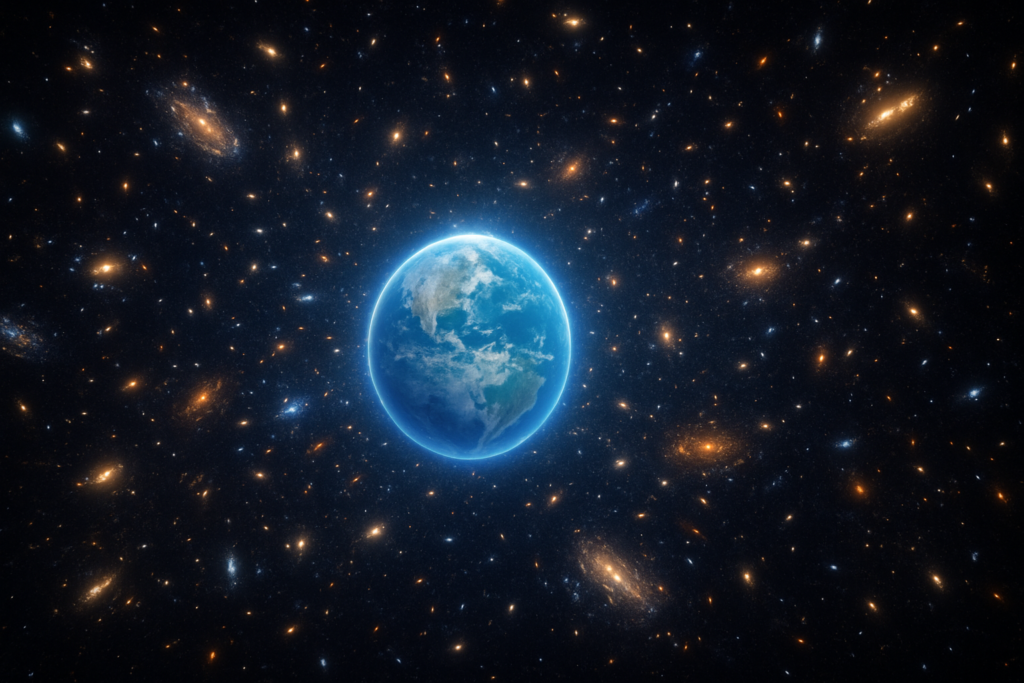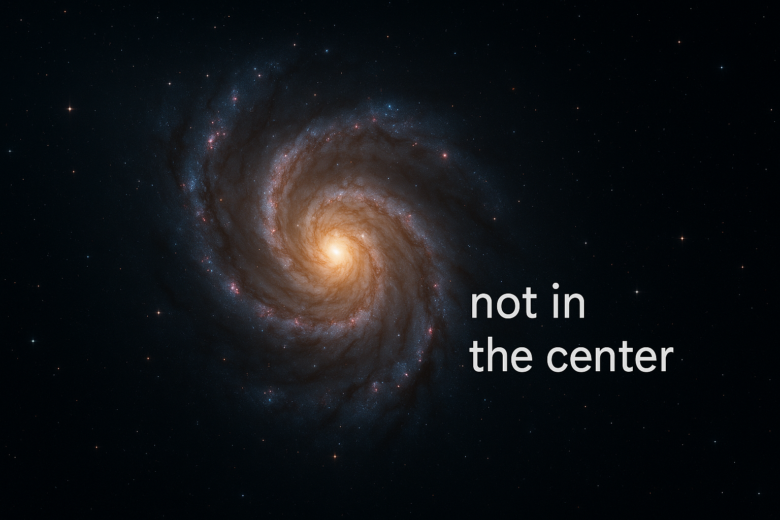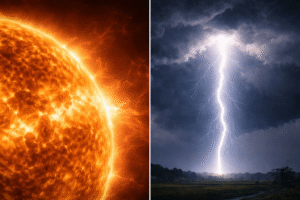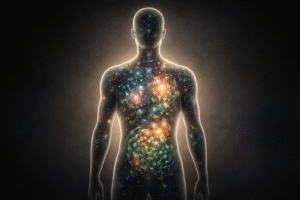Fun Fact: If you could ride a beam of light, you’d never hit the “edge” of the universe—because it doesn’t have one.
The idea that the universe has no centre might sound like a philosophical riddle or a Zen koan, but it’s a scientific reality. And it’s one that flips our human instincts upside down. After all, we live in a world full of centres—cities have downtowns, countries have capitals, and even families have that one person who holds everything together. So when we ask, “Where are we in the universe?” it’s not just curiosity—it’s a deep psychological need to locate ourselves. But what if there’s no central point to locate? No cosmic headquarters? Just… space?
In this blog, we’re going to explore one of the weirdest truths of modern cosmology: that the universe has no centre. And yet, somehow, we’re still somewhere.
The Myth of the Cosmic Centre
Let’s begin by busting a myth that refuses to die: that the universe exploded outward from a single point in space like a cosmic firework. That idea comes from a misunderstanding of the Big Bang. The Big Bang wasn’t an explosion in space—it was an explosion of space.
In the earliest moments—about 13.8 billion years ago—space itself began expanding. Imagine an infinite rubber sheet with dots on it. If you stretch the sheet, all the dots move away from each other, but no dot is the “centre” of the expansion. That’s our universe. Every point in space is moving away from every other point. No centre. No edge.
So if the universe has no centre, that means Earth isn’t in the middle. But it also means there’s no “middle” for Earth not to be in.
Mind blown?
Okay, But Where Are We?
Here’s the funny part. While the universe has no centre, you can think of yourself as being in the centre of the observable universe. And so can I. And so can your cat.
That’s because light travels at a finite speed. We can only see the parts of the universe from which light has had time to reach us—about 46.5 billion light-years in every direction. So from your point of view, you’re at the centre of a sphere of visibility, just like everyone else is from their own point of view.
It’s like being in a dense fog at night with a flashlight. You can only see a few feet in each direction, so the world appears to centre around you. But the fog is everywhere, and everyone’s flashlight lights up a different patch.
This “observable universe” is not the whole universe—it’s just the part we can see. What lies beyond it is anyone’s guess. Infinite space? Other bubble universes? Cosmic dragons? (Probably not dragons.)

A Universe with No Centre—and No Edge
Now, you might ask: “If the universe has no centre, then where is the edge?”
Surprise again: there’s no edge either.
The universe might be infinite, or it might be finite but unbounded—like the surface of a sphere. Except, instead of two dimensions like a balloon, it’s in three. If you travel in a straight line long enough, you might—hypothetically—end up where you started, without ever hitting a wall.
That’s hard to imagine because we’re so used to boundaries. Everything we know has edges—tables, rooms, countries. But space doesn’t play by those rules. It’s not inside something. It is the thing.
But Didn’t the Big Bang Happen Somewhere?
Here’s where the confusion often starts. People imagine the Big Bang like a grenade going off in an empty room. But again, space itself was what expanded. There was no “room” around it.
A more accurate analogy is baking raisin bread. As the dough rises (like expanding space), the raisins (galaxies) move away from each other. No matter which raisin you pick, it looks like everything is moving away from you. No centre raisin. No special spot.
Cosmic Microwave Background: The Echo of Nowhere
If we can’t find the centre of the universe, can we at least find where the Big Bang happened?
Sort of. The Cosmic Microwave Background (CMB) is the afterglow of the Big Bang, a faint radiation left over from when the universe was just 380,000 years old. It’s coming at us from every direction. And it looks remarkably uniform.
That uniformity tells us something profound: the early universe expanded equally in all directions. No preferred centre. No privileged location. We are in a universe that is astonishingly democratic—every place is as good as every other place.
Which may be the most humbling idea in all of science.
So… Are We Special or Not?
Here’s the paradox. We are not at the centre of the universe. But we are at the centre of our observable universe. That’s not arrogance—that’s just how light works.
This doesn’t mean we’re cosmically important. But it also doesn’t mean we’re insignificant. In a centreless universe, meaning isn’t something we inherit from geography. It’s something we make.
Carl Sagan once said, “We are a way for the cosmos to know itself.” Maybe that’s our real place—not in the middle of space, but in the middle of awareness. Of wonder.
Why This Matters More Than You Think
This isn’t just nerdy trivia. Understanding that the universe has no centre reshapes how we see our planet, our place, and even our politics. There’s no cosmic North Pole, no natural hierarchy. The cosmos doesn’t care about borders, races, or flags.
So maybe we shouldn’t either.
When we realise that no place is the centre, we start to see every place as equally valuable. That includes rural India, downtown Delhi, the Andaman Islands, or a tiny village in Mizoram. All are valid centres of the observable universe.
If that doesn’t stir something in you, read it again.
Conclusion: In a Centreless Universe, We Choose Our Meaning
The question “Where are we?” turns out to be less about location and more about perspective.
We are in a universe that has no centre, no edge, no top or bottom—only expanding space and swirling time. And yet, we exist. We observe. We ask questions.
And that, in itself, is remarkable.
So the next time you look up at the night sky, don’t look for the centre. Look for meaning because that’s something no telescope can find for you.
Author’s Note
This topic has fascinated me since I first learned that Earth isn’t the centre of the solar system—let alone the universe. Writing this felt like falling down a rabbit hole of humility and awe. If this piece made you pause and think about your place in the cosmos, then mission accomplished.
G.C., Ecosociosphere contributor.




